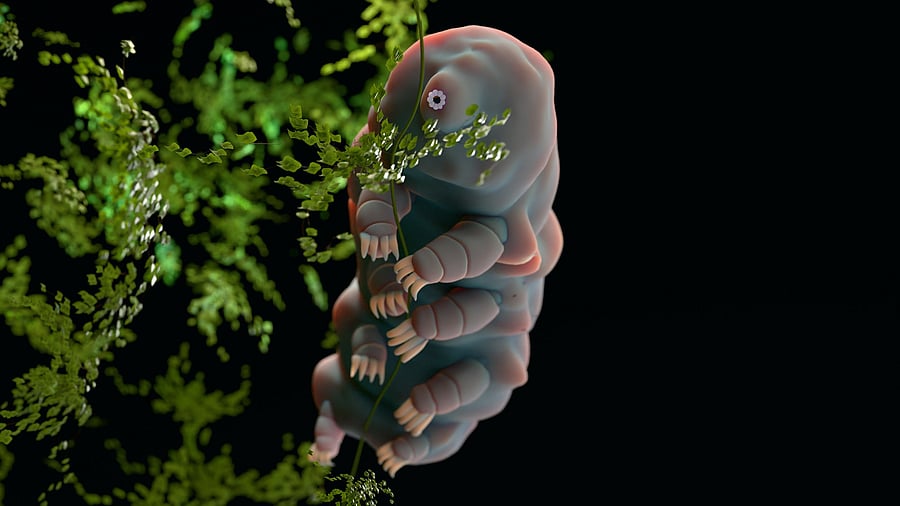
Tardigrade representative image.
Credit: iStock Photo
A 1-millimeter micro-animal, tardigrade, which is found mostly in mossy waters and soils has the unique ability to produce a radiation-resistant protein that could revolutionise cancer treatment as per a new study.
Tardigrade also known as "water bear" or "moss piglet" has the ability to withstand different kinds of environmental extremes, making them one of the "toughest animals on Earth".
According to a report by Pfizer, tardigrade produces a damage suppressor protein called 'Dsup' which can be used by cancer patients under-going radiation therapy.
They can repair damaged DNA and RNA and also produce fatty acids, which is essential for brain, nerve function and overall cell health, that humans are incapable of doing.
Researchers found that when the protein is injected into mice, it has substantially reduced radiation damage to healthy cells and allowed radiation therapy to continue, targeting cancer cells as per a report by MIT News.
Giovanni Traverso, associate professor of mechanical engineering at MIT and the co-author of the study said, “Radiation can be very helpful for many tumors, but we also recognize that the side effects can be limiting. There’s an unmet need with respect to helping patients mitigate the risk of damaging adjacent tissue.”
mRNA technology was used to manipulate certain cells in mice to produce the Dsup protein and then exposed the cells to radiation.
It was found that the cells which were manipulated were able to resist radiation damage. It is believed that the tardigrade-made protein binds with DNA strands and suppresses damage which prevents them from disintegrating, which is a common occurrence in cancer patients due to radiation,
Scientists are aiming to create an higher version of the protein, Dsup which can be used to protect human cells from radiation and prevent any unwanted drawbacks.
They also believe that astronauts can use the protein to protect against space-related radiation.
